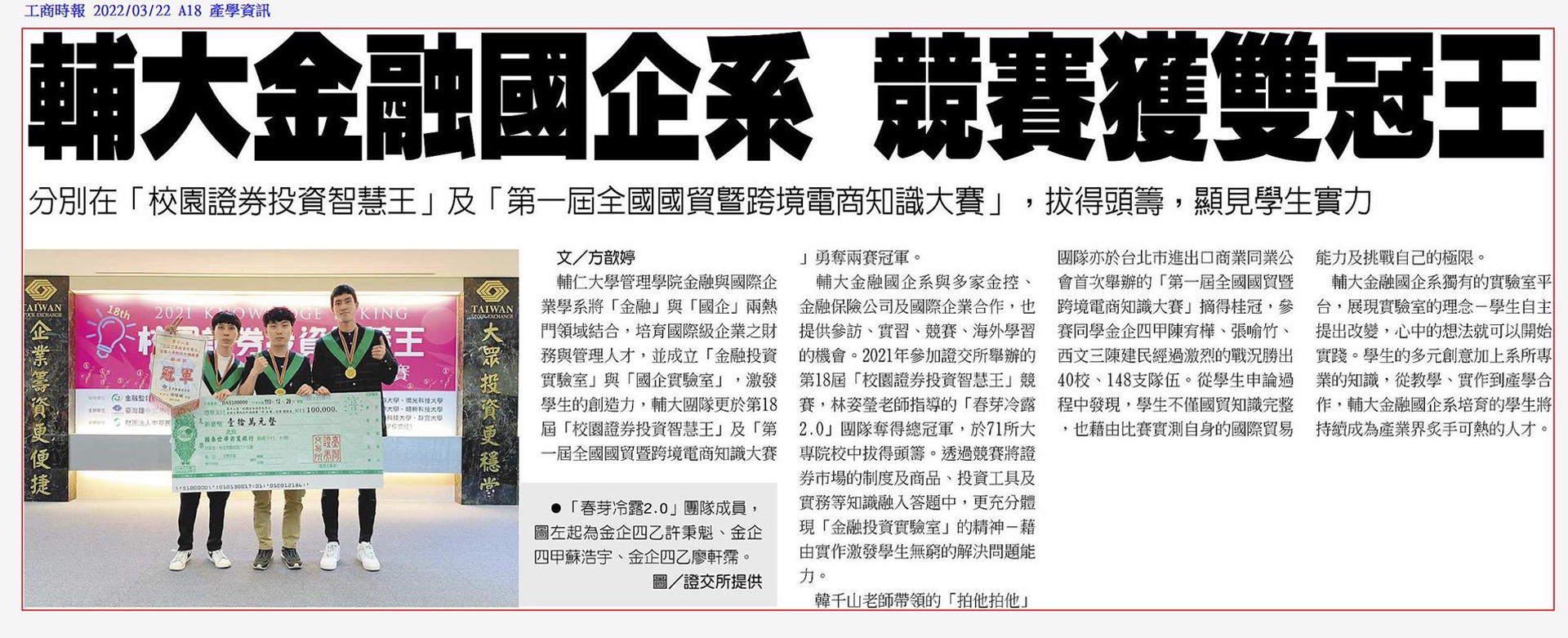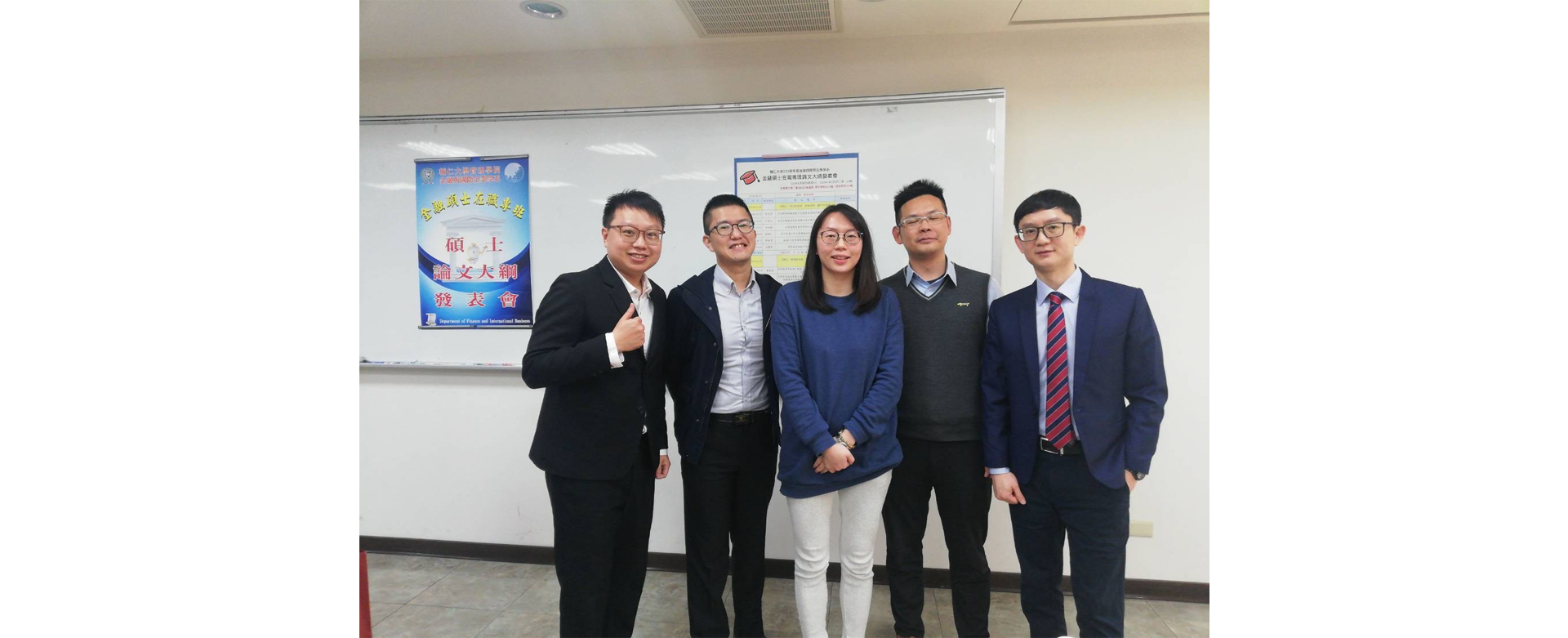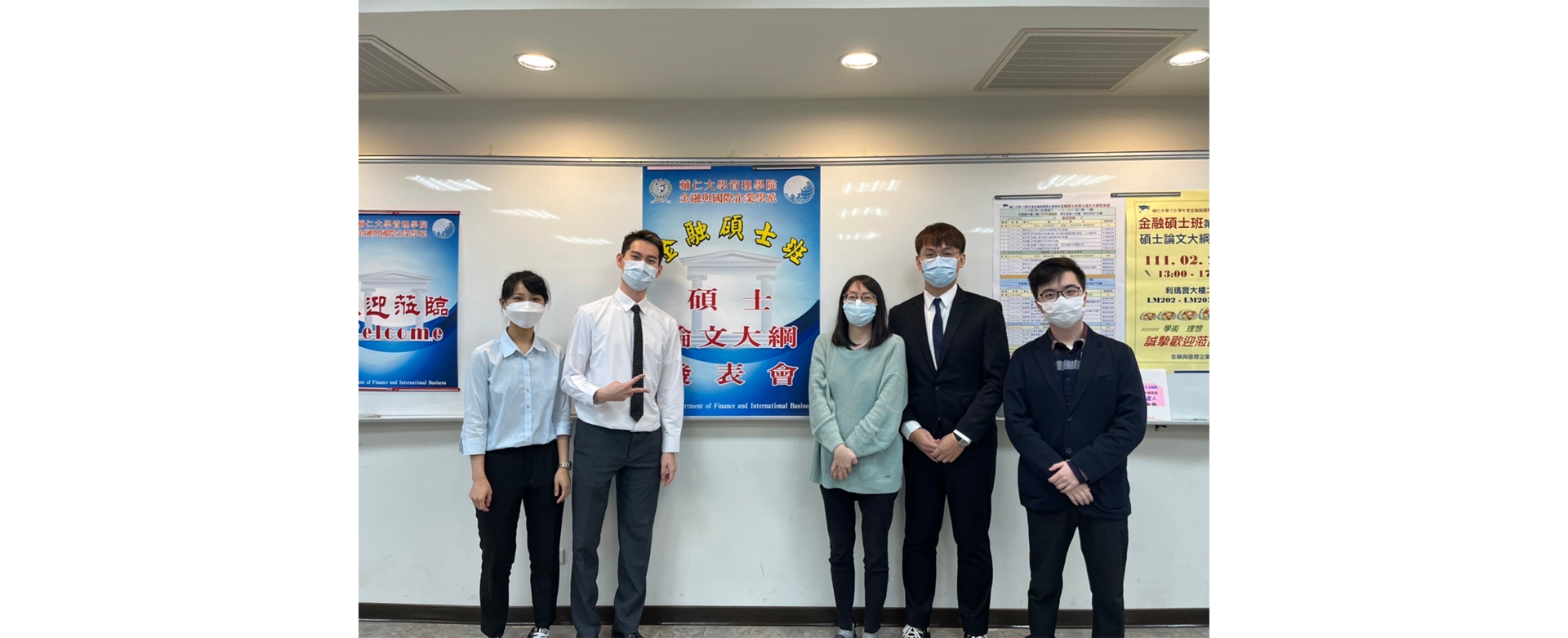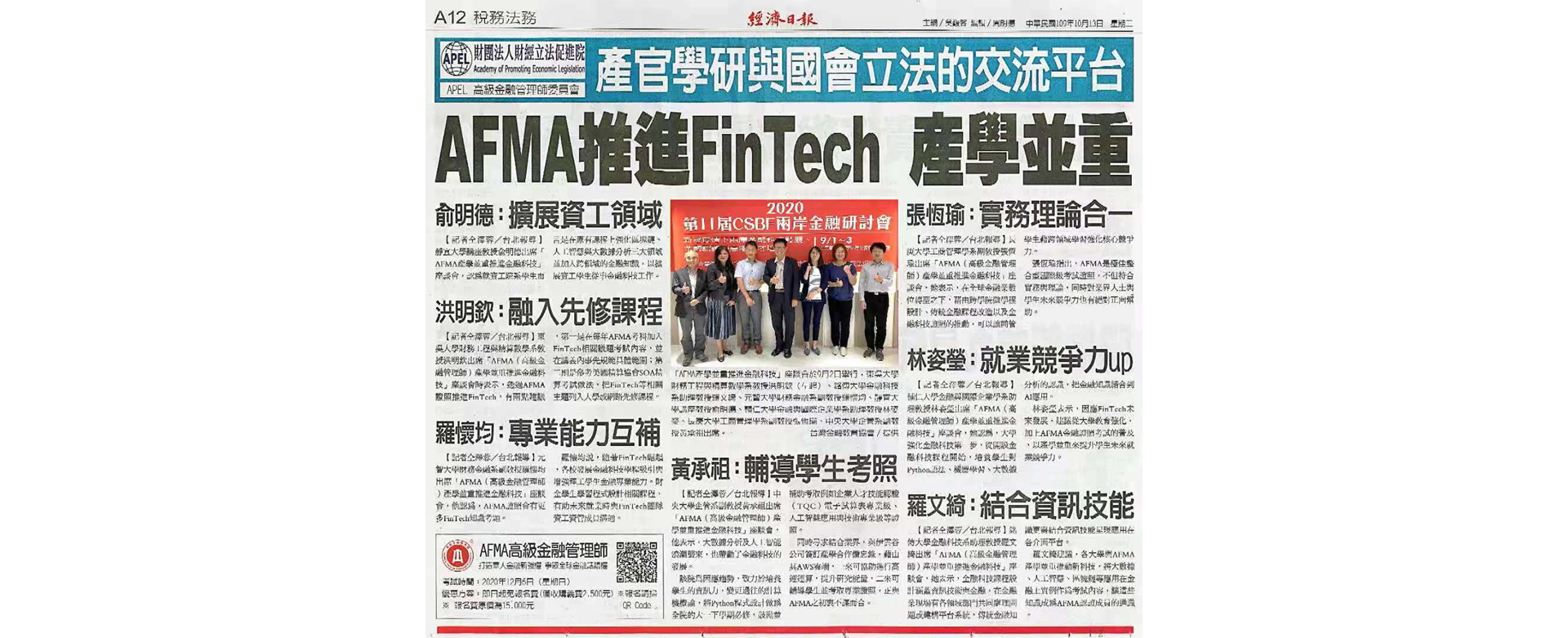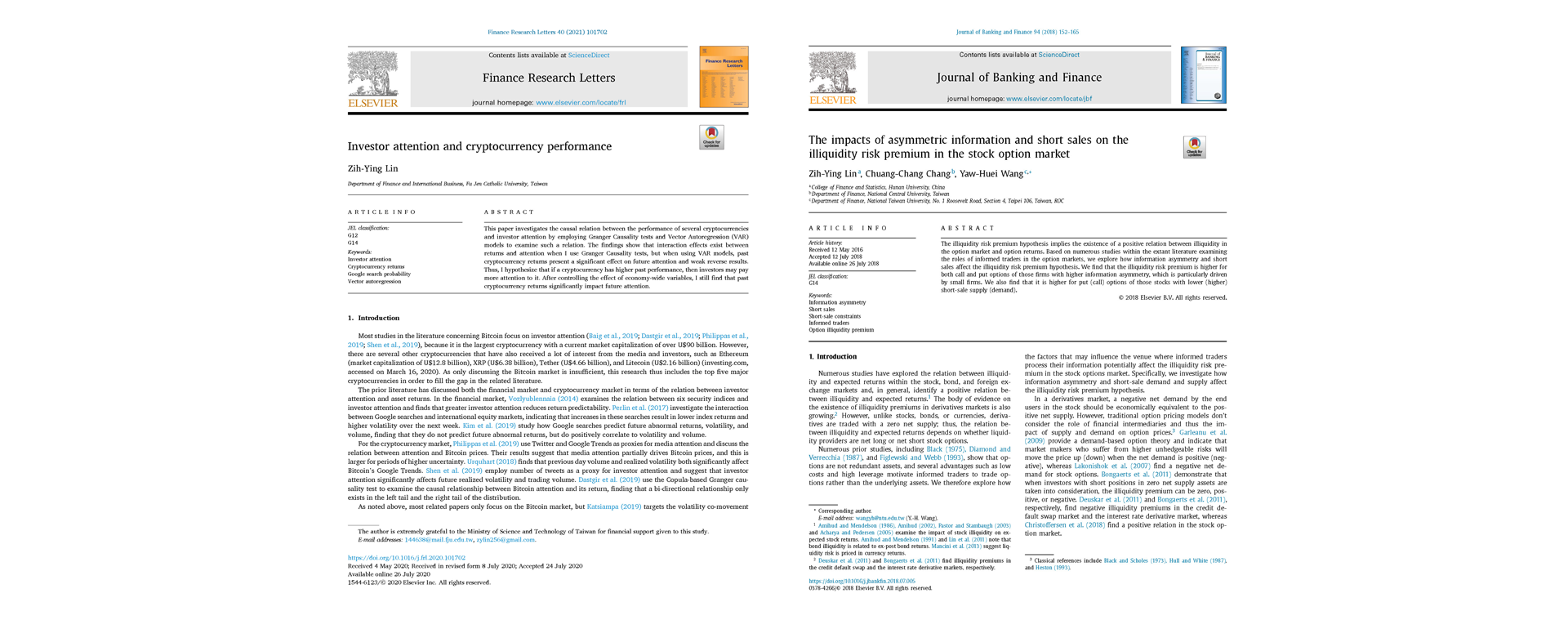Featured Scientist
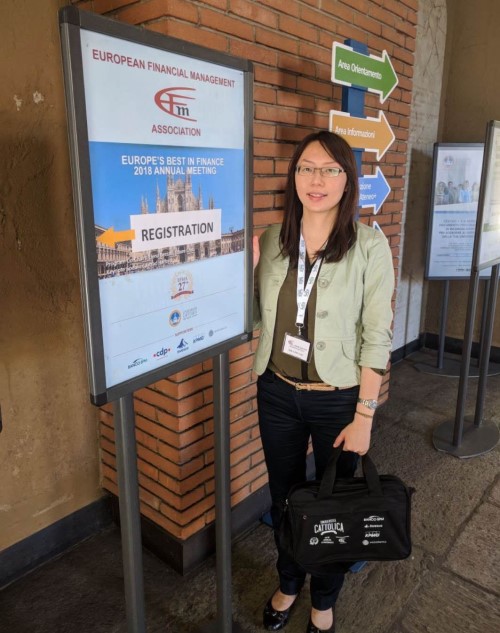
Zih-Ying Lin, Ph. D.
Associate professor
Department of Finance and International Business
Investment decision related to financial derivative and cryptocurrency market
Dr. Zih-Ying Lin is currently an associate professor of Fu Jen Catholic University, who has been served at the assistant professor of Fu Jen Catholic University and Hunan University. Her main research field covers futures and options, monetary banking, international finance, digital currency, etc., she has a number of government research plans (host three Ministry of Science and Technology Projects and one Ministry of Education Humanities and Social Sciences Youth Project). In addition, she has won several academic awards of the Taiwan Finance Association Annual Meeting (2015, 2016, 2019, and 2020) and 2020 UMC Business and Management Paper Awards, rich academic experiences. There are several papers published at high quality financial journal, and she is also invited to serve as a review member of many journals.
About cryptocurrency performance, Dr. Zih-Ying Lin investigates the causal relation between the performance of several cryptocurrencies and investor attention by employing Granger Causality tests and Vector Autoregression (VAR) models to examine such a relation. After controlling the effect of economy-wide variables, finding that past cryptocurrency returns still significantly impact future attention.
About financial derivative, Dr. Zih-Ying Lin involves an information asymmetry index (ASY-INDEX) and the probability of informed trading (PIN) to measure information asymmetry and the level of institutional ownership and short interest ratio in a stock to measure the short-sale supply and demand, respectively. Finding the illiquidity risk premium hypothesis implies the existence of a positive relation between illiquidity in the option market and expected option returns. Based on the extant literature examining the roles of informed traders in the option markets, this research explores how information asymmetry and short sales affect the illiquidity risk premium hypothesis.
143 views
